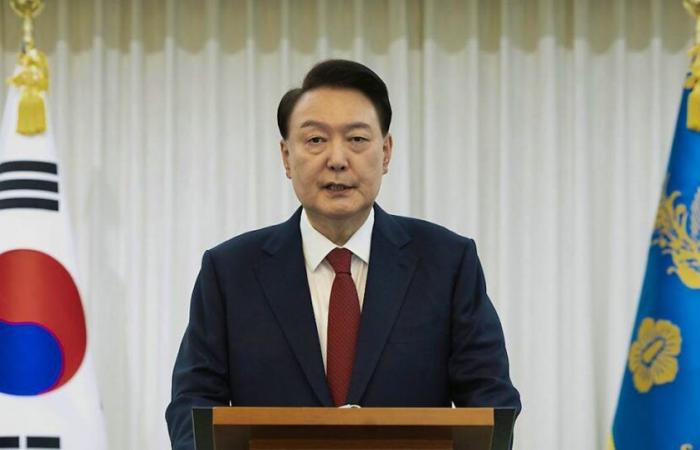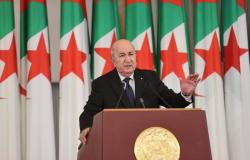The anti-corruption agency responsible for investigating martial law in South Korea announced Monday that it would request additional time to arrest ousted President Yoon Suk Yeol. This after being prevented from doing so on Friday by the leader’s bodyguards.
sda
The arrest warrant issued on December 31 by a Seoul court expires at midnight on Monday. “We plan to request an extension today,” Deputy Director of the Corruption Investigation Office (CIO), Lee Jae-seung, said at a press briefing on Monday morning.
The request was officially filed Monday evening. An extension of the mandate may be granted until the midnight deadline. If this is exceeded, investigators can request a new warrant.
The likelihood that the court will not grant the extension “is very low,” Lee Jae-seung argued.
On Friday, IOC investigators supported by police officers entered the president’s residence in Seoul to apprehend him. But they came up against an army unit and agents of the Presidential Security Service (PSS), outnumbering them, and retreated empty-handed after six hours of tense face-to-face confrontation.
Current negotiations
Negotiations between different security services are underway on Monday on how to proceed with a second attempt.
The police declined a request from the IOC which, due to the difficulties encountered on Friday, wanted them to take charge of the next raid on Mr. Yoon alone. But she made it known that she would still lend him a helping hand.
“The execution of the arrest warrant for President Yoon is the responsibility of the IOC,” a police official told reporters. But “we will consider the possibility of arresting any personnel of the Presidential Security Service who obstructs the process during the execution of the second term,” he added.
The IOC chief said his department had asked acting President Choi Sang-mok to order the president’s bodyguards to cooperate. “But we have not received a response,” he lamented.
Investigation for “rebellion”
Former star prosecutor Yoon Suk yeol, 64, was dismissed by the National Assembly on December 14. He is the target of an investigation for “rebellion”, a crime punishable by death, for having introduced martial law by surprise on December 3 and sending the army to Parliament to muzzle him, before backing down under pressure deputies and thousands of demonstrators.
Like every day since December 31, hundreds of unconditional supporters of Mr. Yoon were present on Monday from dawn, near the home of the deposed president, ready to fight in the event of a new arrest attempt and watched by numerous police officers, saw AFP journalists on site.
“The Presidential Security Service will protect the president, and we will protect the Presidential Security Service until midnight. If they get a new arrest warrant, we will come back,” said one of the organizers of the rally, Kim Soo-yong, 62.
About fifty detractors of Mr. Yoon also demonstrated in the surrounding area. “The IOC is one of the most incompetent agencies I have ever seen (…), It makes no sense that they can’t do it. They must stop it immediately,” said one of these demonstrators, Kim Ah-young, in her thirties.
The blink one would
In the midst of this psychodrama, American Secretary of State Antony Blinken made a short visit to Seoul on Monday, the first stop on a farewell tour also including Japan, France and Italy. The vociferations of pro-Yoon demonstrators were clearly audible from the hotel where he was staying.
Mr. Blinken refrained from taking any position on the political situation but praised the country’s “democratic resilience”. “The United States has full confidence in the institutions of South Korea,” declared the Secretary of State at a press conference.
As if to add to the ambient confusion, North Korea also fired its first ballistic missile of the year during his visit.
“Invalid and illegal” arrest warrant
Mr. Yoon’s lawyers argue that the arrest warrant is “invalid and illegal.” Their appeal against the mandate was rejected by a Seoul court, but they said they would appeal.
The head of the Presidential Security Service, Park Jong-jun, invoked this argument on Sunday to justify his refusal to allow Mr. Yoon to be arrested. Mr. Yoon’s detractors, for their part, accuse his service of having become a “private militia” of the president.
On Sunday, one of the lawyers of the deposed president, Yoon Kab-keun, also announced the filing of a complaint against the head of the IOC.
South Korea’s Constitutional Court, which has until mid-June to confirm or overturn Mr. Yoon’s impeachment, announced that hearings would begin on January 14. In the meantime, Mr. Yoon, suspended, officially remains the country’s president.






